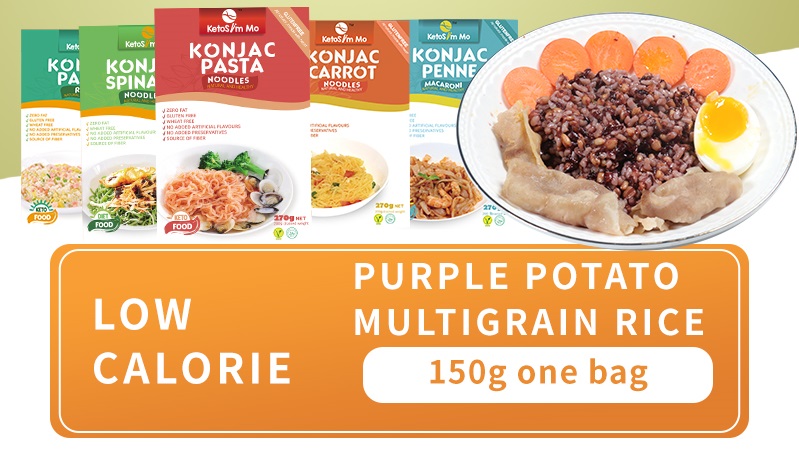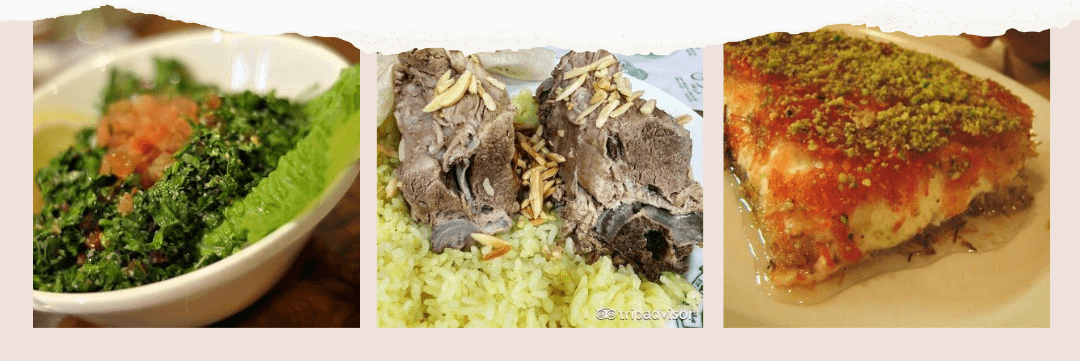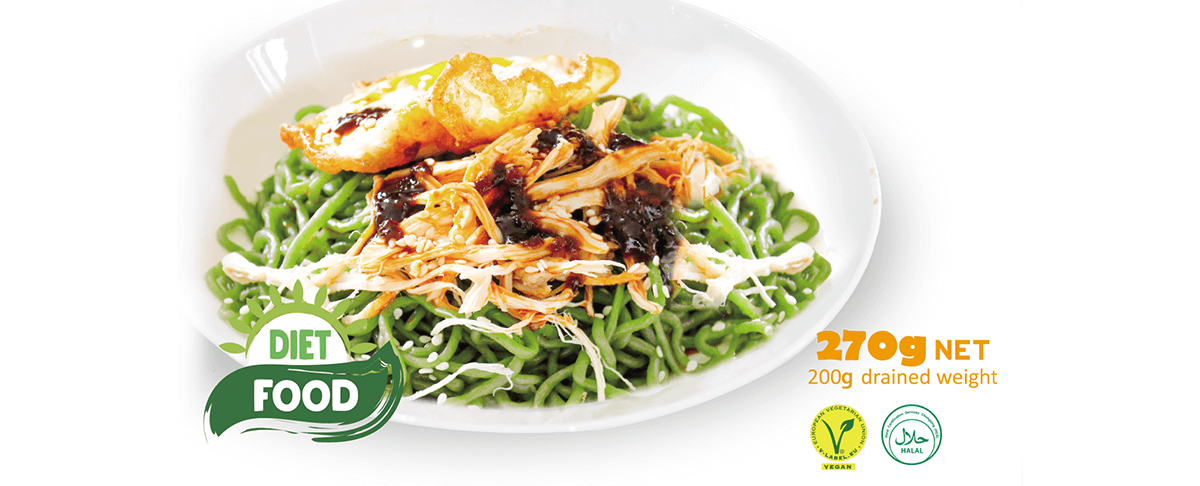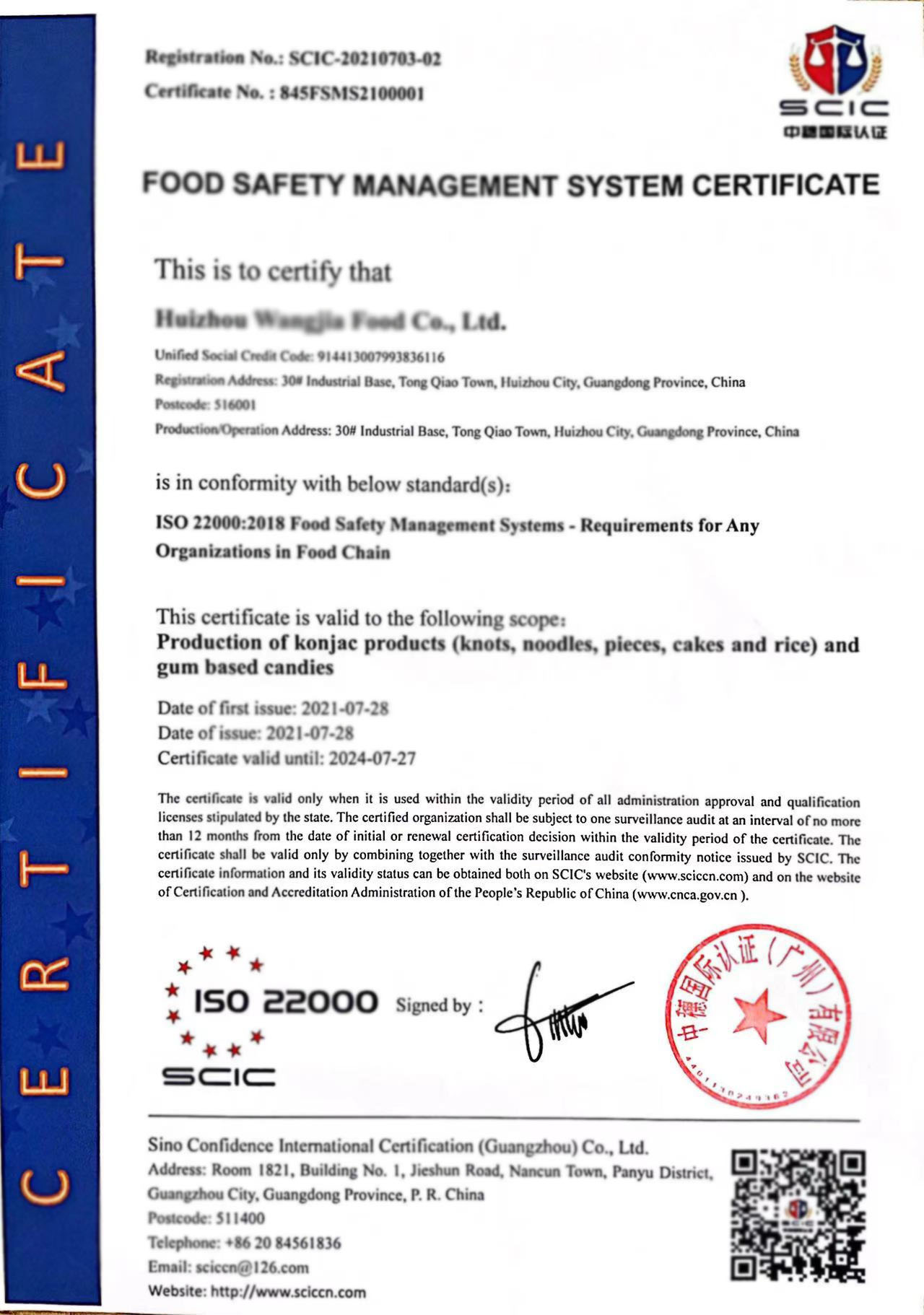What Certifications are Required for Konjac Export to The Middle East?
Ketoslim Mo, as a konjac food wholesale supplier, we are committed to providing quality konjac products to global customers. With more than ten years of experience and expertise in multiple national markets and regions, we have a good position in the konjac industry.
We carry many different types of konjac products, such as konjac noodles, konjac rice, konjac silk knots, konjac udon, konjac vegetarian food, konjac snacks, konjac jelly, etc. Our production cycle and quality control process comply with global norms to guarantee the safety and quality of our products.

The Middle East is a market full of open doors and opportunities, with strict prerequisites for food quality and safety. Secondly, as a customized supplier of konjac food, it is very important to have a deep understanding and compliance with the certification conditions of the Middle East market.
This article will discuss in detail the need for certification when exporting konjac products to markets in the Middle East. We will focus on HALAL certification and ISO 22000 certification, and mention other relevant certifications that may be involved to help understand and solve the needs of the Middle East market.
Konjac Market Potential in the Middle East
The Middle East is a region with rapid financial development and expanding utilization capabilities. Its rich assets and important area make it one of the important focuses of communication and trade in the world. In recent years, driven by monetary expansion and demographic development, the food market in the Middle East region has shown great potential.
As a healthy, low-calorie, high-fiber food, konjac has made a compromise in terms of quality food in the Middle East market. Consumers in the Middle East are gradually paying attention to stable eating habits and lifestyles, and have great interest in nutritious, natural and useful food varieties. Therefore, konjac has broad development space in the Middle East market.


Certification requirements for konjac exported to the Middle East
HALAL certification
HALAL certification refers to a food certificate that complies with Shariah principles. In the Middle East, HALAL certification is an important condition for entering the Muslim market. The HALAL certificate guarantees that the food does not contain excluded additives during processing, handling and addition, and follows Islamic food guidelines.
HALAL certification is essential for the export of konjac commodities in the Middle East market. This shows that our konjac products comply with Islamic laws and can meet the Muslim buyers' prerequisites for halal food. Ketoslim Mo konjac products have obtained Halal certification. If you need to customize your own konjac products, it is recommended that you apply for Halal certification. Halal certification will help improve the market competitiveness of our products and win the trust and trust of consumers in the Middle East.
Specific requirements and procedures for HALAL certification may vary by region, but generally include the following:
Food raw materials: raw materials must be obtained from sources that meet HALAL requirements, and must not contain prohibited ingredients, such as pork, animal blood, etc.
Production and processing: HALAL regulations must be followed during production and processing, and equipment and processes that meet HALAL requirements must be used.
Cleanliness and Sanitation: Factories must be kept clean with proper sanitation practices in place to ensure that food is not contaminated.
Certification body: HALAL certification is usually evaluated and certified by a specialized certification body or organization.
The specific HALAL certification procedures may include submitting applications, reviewing on-site operations, sample testing, reviewing documents and procedures, etc. The certification body will strictly review the applicant's production process to ensure that it meets the requirements of HALAL certification.

Getting HALAL confirmation is pivotal while entering the Center East market. Muslim purchasers in the Center East demand purchasing and eating halal food, and they append extraordinary significance to food HALAL certificate. If our konjac items don't have HALAL confirmation, we will miss a ton of expected Muslim buyers and piece of the pie.
Explore the Middle East market now
Inquire about pricing
ISO 22000 certification
ISO 22000 is a food safety management system standard that is widely recognized and adopted. This certification demonstrates that an organization has high standards and reliability in food safety management. ISO 22000 certification is an international certification that conveys an organization's commitment to food safety and quality management to the global market.
ISO 22000 certificate expects associations to lay out and carry out a sanitation the board framework to guarantee the security of food during creation, handling and deals. Explicit prerequisites incorporate however are not restricted to the accompanying:
Food handling strategy: The association ought to plan a reasonable food handling strategy and execute it at all degrees of the board.
Peril Examination: Lead danger investigation during food creation to recognize potential food handling gambles.
Risk Control Measures: Foster control measures to relieve or wipe out sanitation chances.
Checking and improvement: Lay out an observing component to ceaselessly screen and further develop the food creation process.

Acquiring ISO 22000 affirmation is of incredible importance for the commodity of konjac items to the Center East market. This certification exhibits our association's global degree of capability and responsibility in sanitation and quality administration. Here is the significance of acquiring ISO 22000 accreditation:
Food handling ensure: ISO 22000 affirmation guarantees that our konjac items fulfill sanitation guidelines during the time spent creation, handling and deals, and safeguards the wellbeing and privileges of shoppers.
Global market acknowledgment: ISO 22000 is a worldwide normal sanitation the board standard. Getting this affirmation can win acknowledgment and trust for our konjac items in the worldwide market and open up more product open doors.
Meet import prerequisites: The import strategies of numerous nations and districts require food providers to get ISO 22000 confirmation as an essential condition for imported items. By acquiring the affirmation, we can meet the import prerequisites of the Center East market and guarantee the smooth section of our konjac items into this market.
Export Documents and Certificates
When konjac products are exported, Ketoslim Mo prepares a series of reports and statements to meet the needs of importing Middle Eastern countries or regions and ensure the legality and smooth progress of commodity circulation. Below are the documents and certifications we will prepare:
a. Certificate of origin: The certificate of origin is a document confirming the origin of the product, which proves the origin of konjac products. It is usually issued by the local chamber of commerce, government agency or trade promotion agency. Certificates of origin are an important reference for regulators and consumers in importing countries to verify the origin and quality of products.
b. Quality and safety certificate: The quality and safety certificate is a document issued by an accredited testing agency or laboratory, proving that konjac products meet specific quality and safety standards. These certificates can include product test reports, quality management system certifications (such as ISO 9001) and food safety management system certifications (such as ISO 22000). Quality and safety certificates can increase product credibility and market competitiveness.
c. Shipping documents: During the export process, it is also necessary to prepare shipping documents, such as packing list, bill of lading, and shipping insurance certificate, etc. These documents record the quantity, specification, mode of transportation and insurance of the goods to ensure the safety and integrity of the goods during transportation.
d. Commercial invoice and contract: The commercial invoice is the official document of the export transaction, which records the detailed information, price and delivery conditions of the goods, etc. The contract is the legal basis for export transactions, and defines the rights and obligations of both parties, including delivery date, payment method and quality requirements.
e. Other specific documents: According to the requirements of the importing country or region, other specific documents and certificates may also be required, such as inspection reports, health certificates, non-GMO certificates, etc. These documents ensure that the product meets the specific requirements of the importing country or region according to the relevant regulations and standards of the destination country.
Conclusion
In order to meet the needs of the Middle East market, you can directly represent the konjac products of Ketoslim Mo manufacturers with standard production and processing processes and strict quality management systems. We have passed most of the certifications. We also have halal certification and ISO certification for the Middle East market, and We also have vegan certification etc.
If you want to customize konjac products, you can look for manufacturers like Ketoslim Mo to ensure that the products are halal and comply with standards, and help to better obtain export-related certificates.
You May Also Like
Post time: Sep-07-2023





